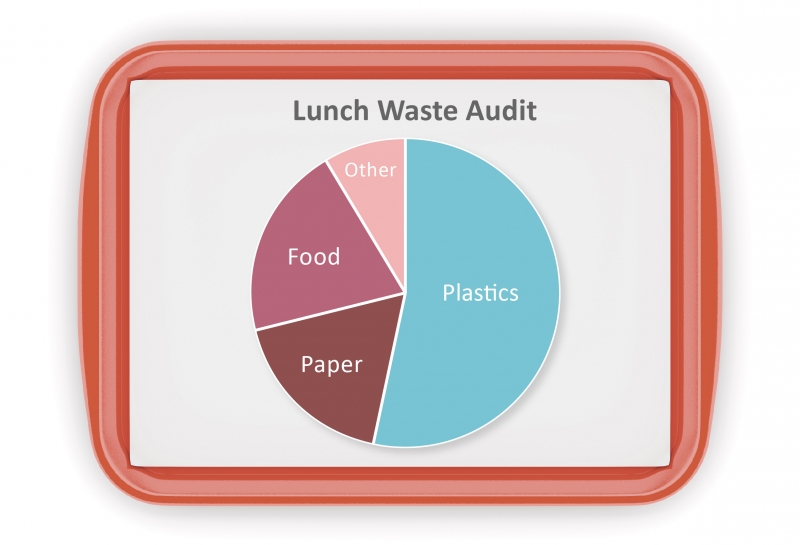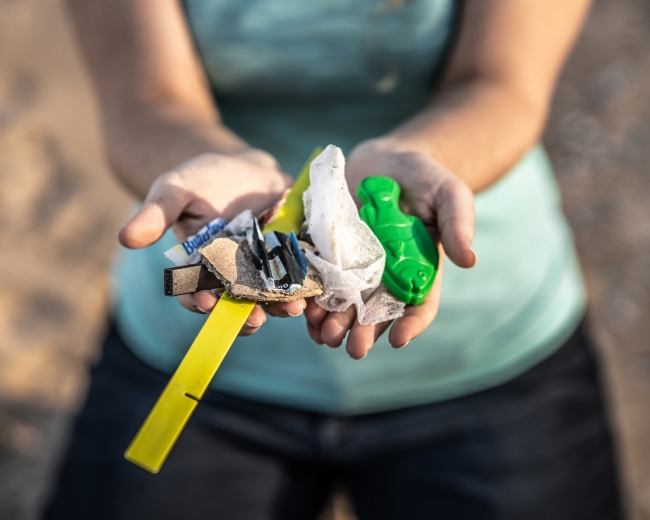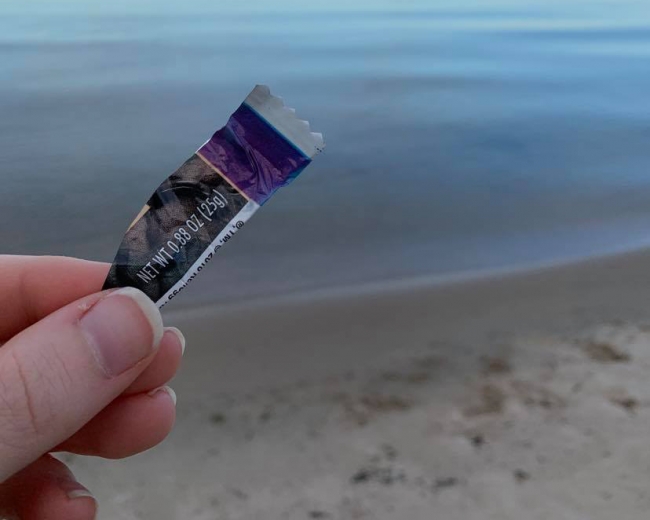Guest blog by: Meag Schwartz, Network Coordinator, Northeast Michigan Great Lakes Stewardship Initiative
Pizza or PB&J? Apple or orange? School cafeterias offer students daily lunch choices, but school-provided meals can generate serious waste, including single-use plastic utensils and plastic foam trays. Lunchroom decisions affect students daily, and the waste from single-use items will affect them for years if they become marine debris. How can we reduce this waste? By empowering students to think critically about their trash and use creativity to design solutions.
Fourth graders at Alcona Elementary, located in rural northeast Michigan, took a closer look at the waste generated from their school lunches. With guidance from the Northeast Michigan Great Lakes Stewardship Initiative (NEMIGLSI), students investigated the relationship between lunchroom waste and its effect on local ecosystems, particularly Lake Huron, just five miles west of the school. They learned about the harmful impact plastics can have on wildlife health, both in individual animals and through bioaccumulation. This “Food for Thought” effort is a collaboration led by NEMIGLSI, the Community Foundation for Northeast Michigan, and Michigan State University Extension with funding support from a NOAA Marine Debris Program prevention grant.
Three fourth grade classes conducted a two-day post-lunch waste audit during which students individually tallied their waste then compiled the data. The audit revealed that from the 375 items that were thrown away, more than half were plastics! After analyzing their audit results, each class selected a target waste item and reached out to the school’s food service director with questions about lunch packaging rules. Students will continue to brainstorm ways to reduce both plastic and food waste from school lunches.

The “Food for Thought” project emphasizes place-based stewardship education (PBSE) to connect students with their communities and local natural resources and provide them with the skills and knowledge to become natural resource stewards. Through PBSE, students are empowered, heard, and given opportunities to collaborate with teachers and community partners, while gaining leadership and decision-making skills.
“Food for Thought” is designed to reduce the production of land-based litter, preventing marine debris before it starts. The long-term goal is for schools and communities to make informed decisions to protect their watersheds through institutional and behavioral changes that reduce the amount of land-based litter produced. Alcona Elementary is one of two schools piloting lunchroom waste reduction efforts this school year in an effort to create the Taking a Bite Out of Lunchroom Waste educator toolkit. This kit will be a compilation of resources to facilitate future student engagement in lunchroom waste data collection, analyses, and development of a feasibility report. The goal of the student-developed feasibility report is to provide school administrators with the costs and benefits of making long-term institutional changes. Additionally, the kit will contain support for embedding annual lunchroom waste analysis into the school curriculum.
With support from a NOAA Marine Debris Program prevention grant, “Food for Thought” will expand to ten schools in the 2021-2022 school year. Ultimately, the educator toolkit will be made available to teachers across the Great Lakes region and help inspire students to become Marine Debris Prevention Ambassadors in their communities.


